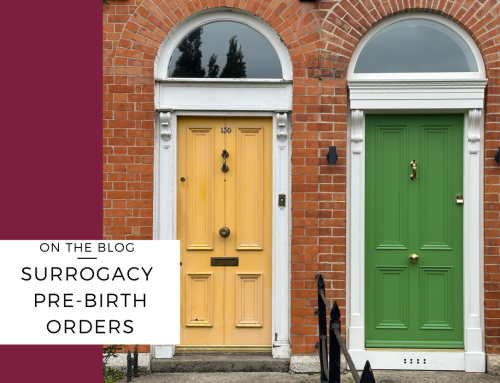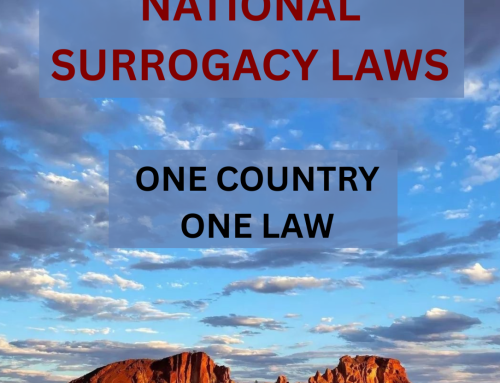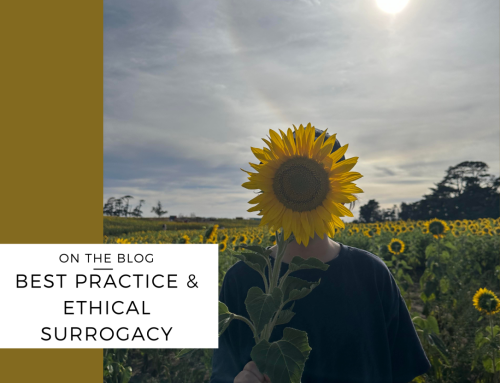A vision for surrogacy in Australia.
I’ve thought about surrogacy and all its complexities, and written thousands of words about it over the last eight years. My ideas have changed over time, but one thing that has always been clear, is that we need to reform surrogacy laws in Australia. In the last decade we’ve had law reform, or reviews, in five states and territories, but we’ve only ever tinkered around the edges. What we need is a complete overhaul of how we think about surrogacy and how we regulate surrogacy in Australia.
There are only about 130-150 surrogacy births in Australia each year, and over 300 babies born via surrogacy overseas for Australian intended parents.
Many intended parents engage in surrogacy in countries where there is little to no regulation and the child’s rights and wellbeing are at risk, as are those of the surrogate.
Unfortunately, there are many risky practices and poor outcomes overseas in unregulated jurisdictions. Our government must take responsibility for Australian intended parents and the children born and ensure that everyone’s rights are protected. The best way to do that is to make surrogacy a more viable option in Australia.
Surrogacy law reform is needed to ensure consistent recognition of parentage for children born via surrogacy. The Australian government announced a review of Australia’s surrogacy laws which will happen in 2025-2026. You can find out how to make a submission and come along to a webinar on Tuesday 10 June 2025 at 6pm.
Intended parents feel compelled to head overseas for surrogacy because they know the chances of finding a surrogate in Australia are very low. There are many barriers in Australia that make it difficult for intended parents to pursue surrogacy in their home country.
79% of surrogacy arrangements in Australia are between family and friends. The remaining 21% of arrangements connect via social media. Read more about 500 Australian surrogacy arrangements and how they found each other.
Ultimately, the best way to protect the rights of the children born and the rights of surrogates is to pursue surrogacy in Australia.
One way to grow surrogacy in Australia is by allowing compensated surrogacy. I was once of the view that as soon as we involve money, surrogacy becomes a transaction that commodifies surrogates and the children born. Now, I think that the most effective way to remove barriers to surrogacy in Australia, is to compensate surrogates for the time, emotional and physical investment and the risks they take. We should not applaud the altruism of surrogates while allowing the surrogacy and fertility industries to make significant profits from their work. Pregnancy is work – I think surrogacy pregnancy should be compensated.
We must promote the best interests of the child in all matters of parentage and parenting. Applying a best interests lens to surrogacy means that we should be prioritising:
- The health and wellbeing of the surrogate before, during and after pregnancy, including ensuring her autonomy, access to legal advice, counselling and adequate healthcare.
- The child’s access to adequate healthcare during and after the birth.
- The child’s right to citizenship and recognition of parentage.
- The child’s access to information about their birth and donor heritage.
I have a bold vision for surrogacy in Australia. It involves a national surrogacy framework, regulated at the federal level. We need one set of laws that apply to everyone. The current state-by-state mess of surrogacy laws only lead to poor, inconsistent regulation and opportunities, and medical and legal tourism within our own country. They also drive intended parents overseas.
A national framework should support and regulate the introduction and ‘matching’ of surrogates with intended parents. If our only option is to find someone on Facebook, which is entirely unregulated, then we are not protecting everyone’s rights and wellbeing. A national scheme involving counsellors and lawyers reduces the risks of things going wrong, and ensures the protection of everyone’s rights.
We can compensate surrogates without compromising their autonomy and still protect the rights and interests of the children born. We just need to regulate it properly. We can also remove barriers, such as prohibitions on advertising, to make it more viable for intended parents and surrogates to find each other in Australia. If we are truly committed to protecting the rights of children, ensuring their health and wellbeing are paramount, and ensuring the rights and autonomy of surrogates, then making surrogacy more viable in our own country is the way to do it.
I’ve been talking about this vision for surrogacy in media interviews, including on ABC’s Nightlife program, and in discussion with surrogacy-born Alice Clarke and researcher Ezra Kneebone.
For now, all we have is a self-help method of surrogacy which relies on luck. You can read about how to find a surrogate in Australia, or how to become a surrogate yourself. You can also download the free Surrogacy Handbook which explains the processes and options.
Sarah has published a book, More Than Just a Baby: A Guide to Surrogacy for Intended Parents and Surrogates, the only guide to surrogacy in Australia.
You can read a broad overview for surrogacy in Australia and how it works.
You can also book in for a consult with me below, and check out the legal services I provide.








